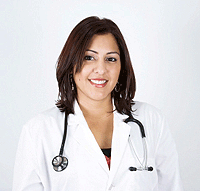Experience of Becoming a Successful Doctor
Though there has been a lot of debate over the urban-rural disconnect in this country, Indian villages have  often been throwing up big surprises which more often than not convince the optimists among us that all is right with this world. If someone is destined to greatness, then no village or mofussil town or sprawling metropolis is going to get in his or her way.
often been throwing up big surprises which more often than not convince the optimists among us that all is right with this world. If someone is destined to greatness, then no village or mofussil town or sprawling metropolis is going to get in his or her way.
For Yugal K Mishra (profiled recently in HT Horizons for his work in the field of robotic surgery), considered one of the world's top cardiac surgeons, the beginning was humble. Born and brought up in the village of Jariyari, Amarpathan Tehsil in Satna district of Madhya Pradesh, Mishra grew up helping his uncle, a medical practitioner, prepare medicines from herbs. The art of healing so appealed to him, that he studied hard to get into medical college, completing his MBBS and MS (Surgery) from S.S.Medical College, Rewa in the same state.
One of the people responsible for his success, Dr Mishra says, was Dr. Curtis Man, a cardiac surgeon "I worked with during my training in Bakulev Research institute for cardiovascular surgery, Moscow. Every single moment in the operation theatre was a teaching session without Dr Man compromising on the patient's safety but giving enough attention to queries posted by his assistants - whether a routine triple bypass or a complex aortic surgery.
His mastery over surgical operations remained the same - whether he was operating on a sick heart in the middle of the night or fresh after a night's rest," says Dr Mishra, who is now director, department of cardiovascular surgery, Escorts Heart Institute & Research Centre, New Delhi.
A good teacher makes things easy, but working your way to the top is not easy. Says Dr Rashmi Taneja, senior consultant, plastic and micro vascular surgeon, Fortis La-femme hospital, "The competitive examinations required a lot of dedicated studies and hard work. Most of us who were appearing in the entrance examinations took extra coaching from coaching institutes. But all the institutes are really there to guide you and help you understand the subject matter. There is no replacement for hard work and studies when preparing for the exam."
Does anything prepare one for the rigours of medical college? No one at the age of 18 entering college is prepared emotionally or mentally, says Taneja, who is from Delhi and did her schooling from Mater Dei. "The adventure and excitement of learning and seeing everything more than makes up for it," she adds.
And the first cadaver? "The first anatomy dissection and seeing a cadaver is an experience that every medical student remembers," says Taneja. Students should be ready for varied responses from fainting to tears to a great deal of excitement, advises she. Taneja was one of the bolder ones and soon realised that she enjoyed the dissection process and was the designated dissector at her dissection table.
A graduate from the Armed Forces Medical College in Pune, Taneja completed her medical schooling from Maulana Azad Medical College, Delhi. She started her MS in general surgery from Delhi's Safdarjung hospital and did the remainder of the training from the US, where getting admission into a general surgery residency training programme was extremely tough.
"After taking the exams and appearing in multiple interviews I was selected to the programme at the University of Medicine and Dentistry of New Jersey, but had to prove myself in my surgical knowledge, skills as a surgeon and as a hard worker before I was selected to advance into the programme to complete the training," adds Taneja. Training in the US is much more rigorous than in any other country.
The day starts at 5 or 5.30 am for most surgery residents and ends when all tasks of the day are complete. The exposure and breath of knowledge and types of research, problem solving skills and patient management skills that Taneja says she developed during the training, however, still stand her in good stead. "I have not regretted a moment of the those six years of training, which were followed by other specialisations in various US medical schools," she adds.
Dr Mishra's advice to those aspiring to be surgeons is, "concentrate on bedside teaching. For a doctor, the patient's ward is the biggest laboratory. Of course, research is mandatory as medical science is evolving every day, hence, medical professionals should always try to gain new knowledge and adopting that knowledge is clinical practice. Also, there should be appropriate balance of research and practice for a clinician," he adds.
Author: Ayesha Banerjee (HT Horizons)
Date: 29th January, 2011
For further details about related courses and colleges please click below:
